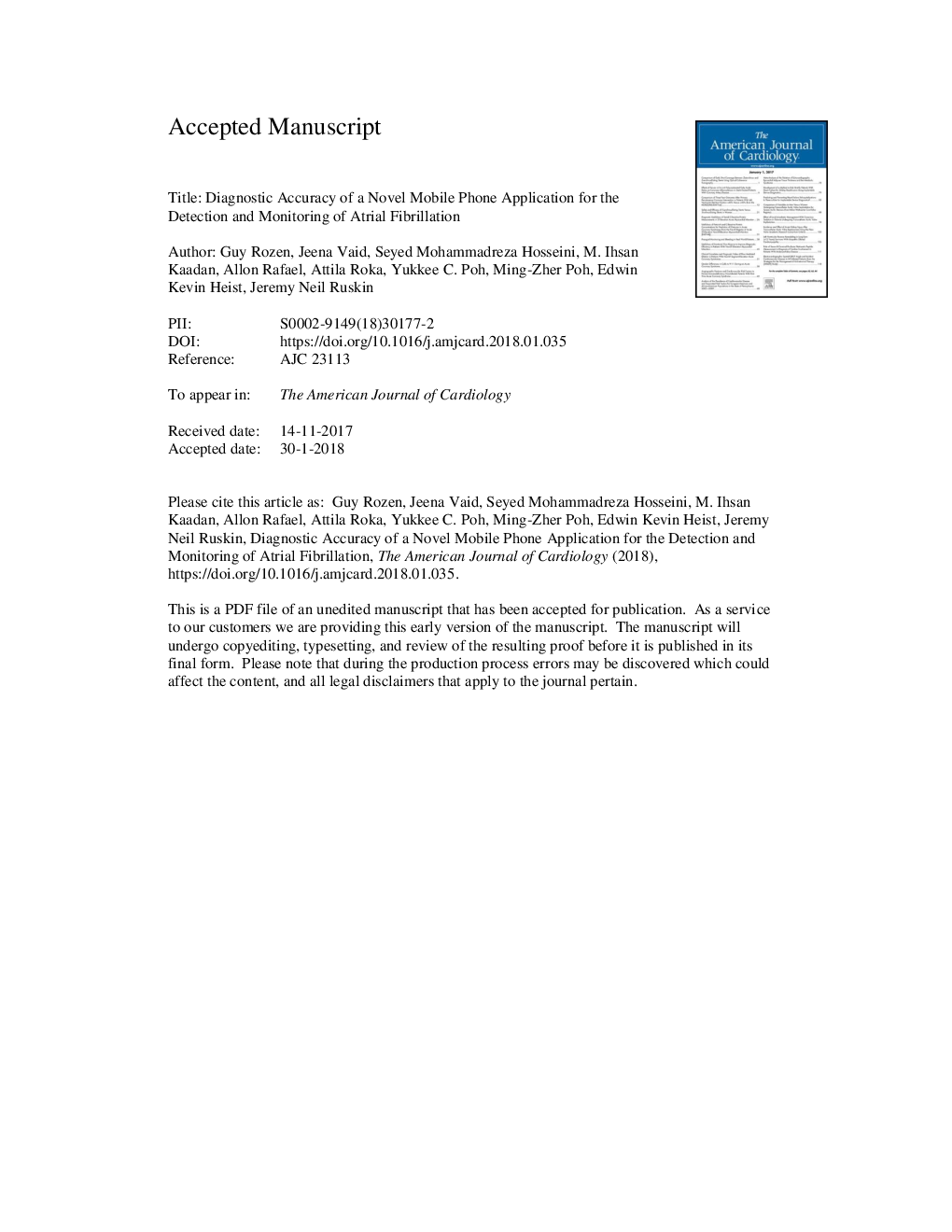| Article ID | Journal | Published Year | Pages | File Type |
|---|---|---|---|---|
| 8651283 | The American Journal of Cardiology | 2018 | 16 Pages |
Abstract
Atrial fibrillation (AF) is the most common sustained cardiac arrhythmia in adults, associated with significant morbidity, increased mortality, and rising health-care costs. Simple and available tools for the accurate detection of arrhythmia recurrence in patients after electrical cardioversion (CV) or ablation procedures for AF can help to guide therapeutic decisions. We conducted a prospective, single-center study to evaluate the accuracy of Cardiio Rhythm Mobile Application (CRMA) for AF detection. Patients >18 years of age who were scheduled for elective CV for AF were enrolled in the study. CRMA finger pulse recordings, utilizing an iPhone camera, were obtained before (pre-CV) and after (post-CV) the CV. The findings were validated against surface electrocardiograms. Ninety-eight patients (75.5% men), mean age of 67.7â±â10.5 years, were enrolled. No electrocardiogram for validation was available in 1 case. Pre-CV CRMA readings were analyzed in 97 of the 98 patients. Post-CV CRMA readings were analyzed for 92 of 93 patients who underwent CV. One patient left before the recording was obtained. The Cardiio Rhythm Mobile Application correctly identified 94 of 101 AF recordings (93.1%) as AF and 80 of 88 non-AF recordings (90.1%) as non-AF. The sensitivity was 93.1% (95% confidence interval [CI]â=â86.9% to 97.2%) and the specificity was 90.9% (95% CIâ=â82.9% to 96.0%). The positive predictive value was 92.2% (95% CIâ=â85.8% to 95.8%) and the negative predictive value was 92.0% (95% CIâ=â94.8% to 95.9%). In conclusion, the CRMA demonstrates promising potential in accurate detection and discrimination of AF from normal sinus rhythm in patients with a history of AF.
Related Topics
Health Sciences
Medicine and Dentistry
Cardiology and Cardiovascular Medicine
Authors
Guy MD, MHA, Jeena MD, MPH, Seyed Mohammadreza MD, M. Ihsan MD, MS, Allon MD, Attila MD, Yukkee C. PhD, Ming-Zher PhD, Edwin Kevin MD, PhD, Jeremy Neil MD,
